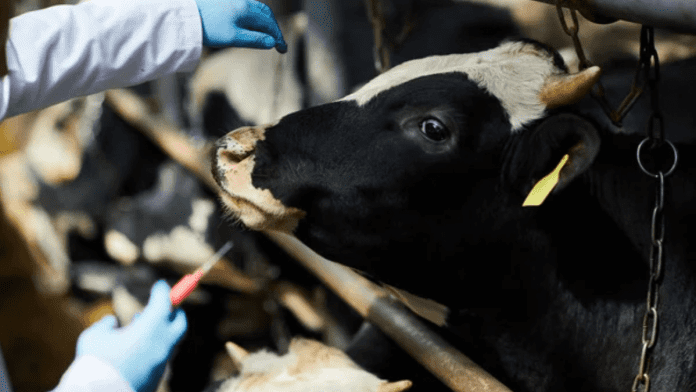News in Brief:
– USDA has allocated $824 million to enhance livestock and poultry health measures, including diagnostics and surveillance against H5N1.
– It also launched a voluntary pilot program for dairy herds to streamline movement with reduced testing requirements.
In a recent announcement, the U.S. Department of Agriculture (USDA) unveiled plans to allocate an additional $824 million towards safeguarding the health and sustainability of the nation’s livestock and poultry. This move comes in response to the detection of H5N1, a strain of avian influenza, in dairy cattle.
The USDA has authorised the transfer of the funds from the Commodity Credit Corporation (CCC) to the Animal and Plant Health Inspection Service (APHIS) to bolster response efforts. This funding will support crucial activities such as diagnostics, field response operations, pre-movement testing requirements, and surveillance and control measures.
In conjunction with the emergency funding, USDA is launching a Voluntary H5N1 Dairy Herd Status Pilot Program. This initiative provides dairy producers with alternative testing and movement options, aimed at enhancing monitoring capabilities and curbing the spread of H5N1.
Farmers participating in the pilot program can demonstrate the health status of their herds through regular testing. Once confirmed free of H5N1, they can streamline the movement of their cows without the need for individual testing, providing flexibility and efficiency in herd management.
Producers from select states will have the opportunity to enroll in the pilot program starting the week of 3 June 2024. Interested farmers are encouraged to contact their APHIS Area Veterinarian in Charge or State Veterinarian to initiate enrollment.
The implementation of additional testing measures is expected to yield valuable insights into the spread of H5N1 among herds. Furthermore, the pilot program will gather data on eliminating the virus from affected operations, contributing to a better understanding of disease management strategies.
USDA remains committed to collaborative efforts with federal partners such as the Centers for Disease Control and Prevention (CDC) and the Food and Drug Administration (FDA) to ensure the health of both livestock and humans, as well as the safety of the food supply.



